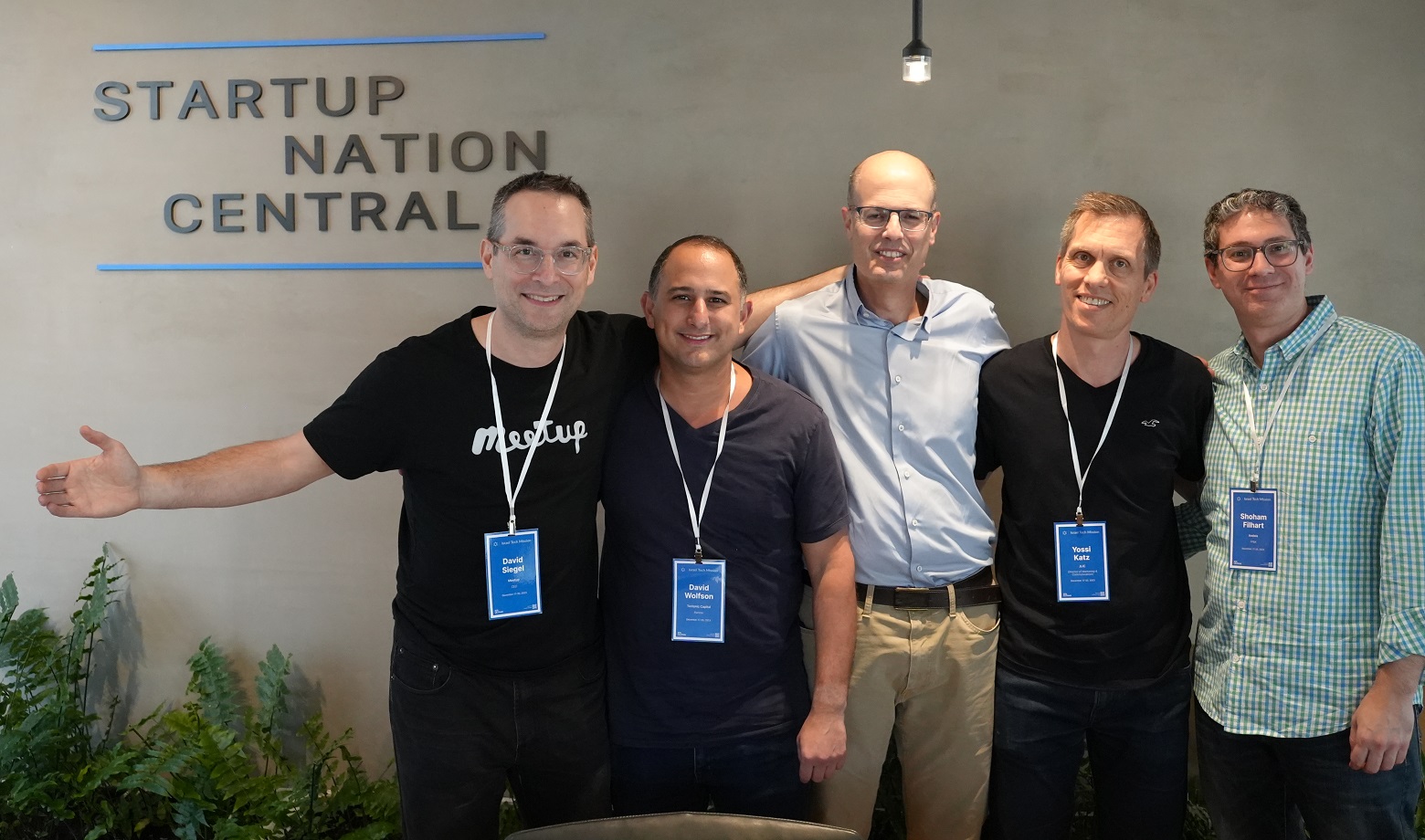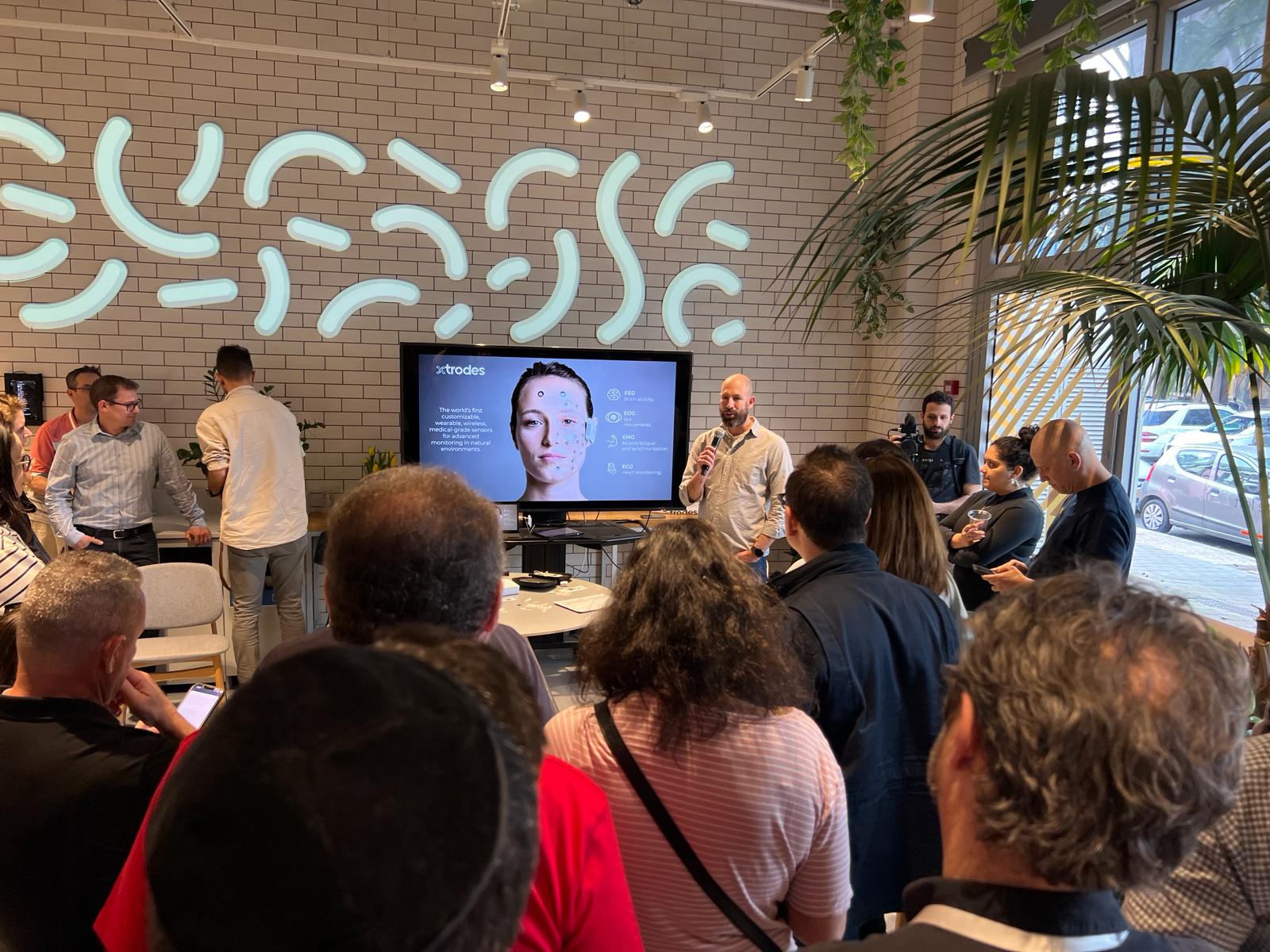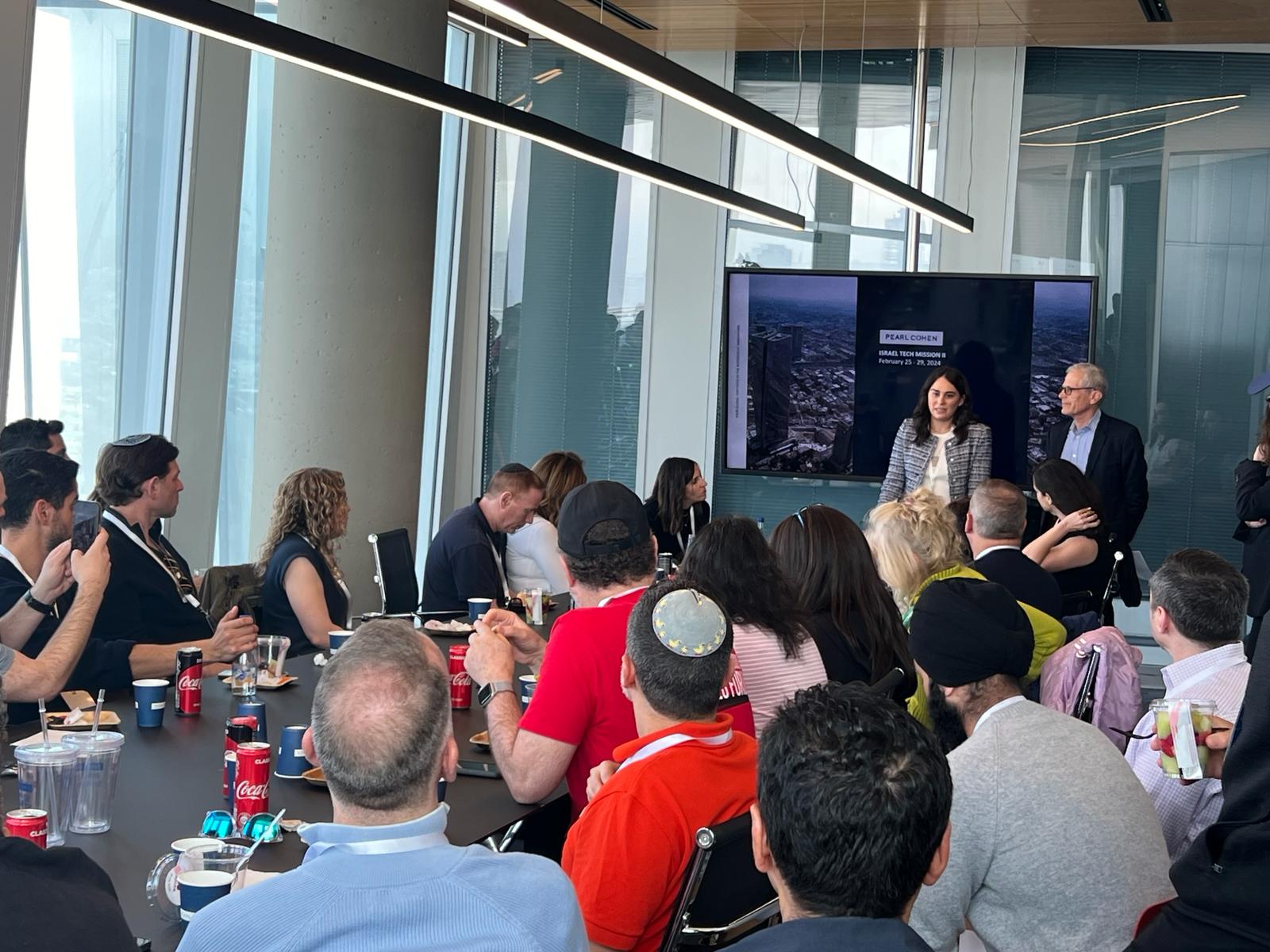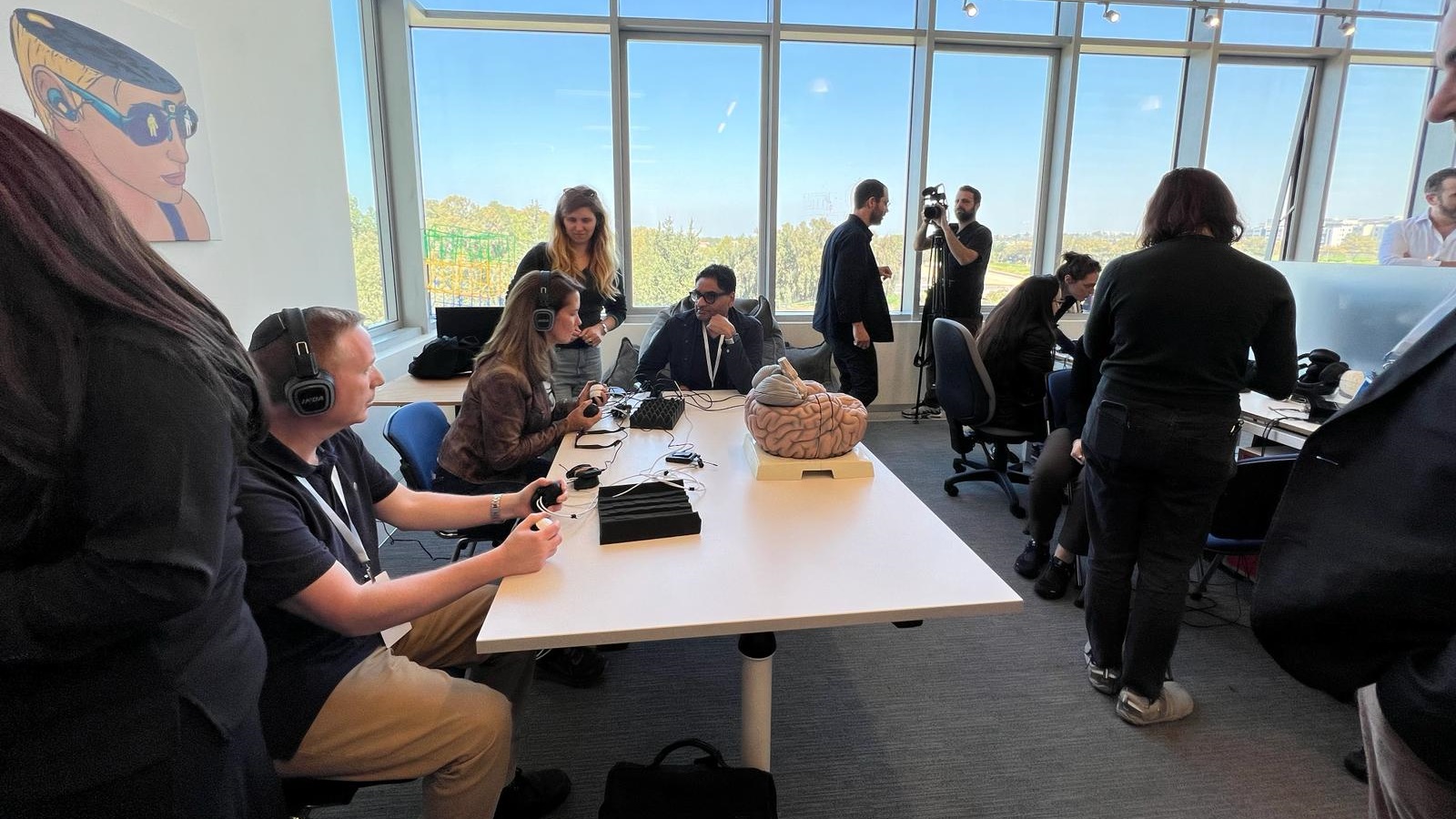War and Tech Meet, Creating Need for Israel Tech Missions Venture
David Siegel’s Israel Tech Mission aims to showcase the Jewish state’s innovation in the face of war by connecting global tech leaders and investors with local pioneers like X-trodes
Decades of conflict between Israel and its neighbors have made innovation an Israeli national trait, giving rise to the development of a flourishing high-tech sector. This has brought global recognition of the country’s tech and innovation prowess, spotlighting the necessity for a clear path to engage with the startup nation. This situation has catalyzed the formation of an organization dedicated to orchestrating monthly missions aimed at the high-tech, biotech, and fintech sectors.
There is no organization that brings the largest and most important tech businesses and investors to Israel. We are going to be that organization, and it’s incredibly exciting to me
That’s why David Siegel, former CEO of Meetup and Investopedia, created the Israel Tech Mission “with the goal of being just like AIPAC, which brings the top political leaders to Israel,” he told The Media Line.

David Siegel (L) on the first Israel Tech Mission. (Courtesy Abby Walla)
Siegel added, “There is no organization that brings the largest and most important tech businesses and investors to Israel. We are going to be that organization, and it’s incredibly exciting to me.”
This mission, the second of its kind, included leading investors and founders, some residing in Israel and others who had visited before, united by a common purpose to effect change. Participants explored top high-tech firms, Reichman University’s research and innovations in health and tech, and the nation’s largest patent office, Pearl Cohen; and met with local innovators and senior figures from the Israel Defense Forces.
Adam Sager, Stoa’s founder and CEO, told The Media Line, “We need to see the kind of technology, everything from drugs and medication, to software that could help people get diagnosed with what they have, to hardware devices.”
At the second Israel Tech Mission, entrepreneurs like X-trodes founder Dr. Ziv Peremen captured widespread interest. Peremen showcased a joint invention with Prof. Yael Hanein: a home-use wearable medical-grade skin patch, drawing keen attention from tech leaders and investors.

Dr. Ziv Pereman unveils X-trodes to an enthusiastic group of potential investors at Google for Startups in Tel Aviv, Israel. (Felice Friedson/The Media Line)
Peremen told The Media Line, “We basically develop skin patches that can measure the body’s signals, such as heart, muscle, eye, and brain activity, and make them accessible everywhere.” He explained the company’s goal to democratize health care by facilitating access to medical-grade data beyond traditional medical settings.
We basically develop skin patches that can measure the body’s signals, such as heart, muscle, eye, and brain activity, and make them accessible everywhere
“The current FDA approval is the result of more than a year of efforts, including the efforts of our team during this war. I think a third of the company, including myself and the rest of the management, was on reserve duty.”
This holiday season, give to:
Truth and understanding
The Media Line's intrepid correspondents are in Israel, Gaza, Lebanon, Syria and Pakistan providing first-person reporting.
They all said they cover it.
We see it.
We report with just one agenda: the truth.


The entrepreneurs showed particular interest in innovations related to physical and mental health, especially given the ongoing Israel-Hamas war.
Esther Howard, founder, CEO, and president of Bezyl, a US-based mental health company supporting cancer patients and veterans with PTSD, underscored the critical need for such mental health technologies.
Howard told The Media Line, “I think the biggest thing missing right now is tools and the ability for people to help each other.”
“We all want to help each other, and everybody is traumatized in some way, but the knowledge, the skills, and the ability to do that is lacking. And since there are so few limited resources in the healthcare system for us, we need to learn to help each other, and that’s what I want to do.”
One participant, Alexandra Benedon, explained to The Media Line that the war is part of why she felt it was important to go on the trip. She explained she heard about it during a Shabbat dinner in Philadelphia, and “it was a spark that went off.

Alexandra Benedon introduces Doron Latzer, a founder and senior partner at the Pearl Cohen law firm. (Felice Friedson/The Media Line)
“I felt so helpless in the United States,” she said about the war. “I’m a doer. I wanted to take action, and I felt like it was my duty, my responsibility, to help and show the world the resilience of the startup nation.”
I felt so helpless in the United States. I’m a doer. I wanted to take action, and I felt like it was my duty, my responsibility, to help and show the world the resilience of the startup nation.
Attorney Avigail Goldglancz told The Media Line, “Whether it was during the intifada back then or now, this is where we belong no matter what’s going on, no matter what’s happening. It’s wartime. And honestly, it’s worse in America. There is no place I’d rather be.”
Goldglancz, who left Israel when she was 7 years old during the First Intifada and has lived in the United States since, continued, “I really think there should be mental health help, not just for soldiers, but for everyone who experienced October 7 and everything that they have been through. The PTSD, I can’t imagine it, especially for children.”
The strong bond with Israel during the war that many participants expressed echoed the need for the new tech mission enterprise.
“My husband took off his kippah in New York City just a few weeks ago, which is mind-boggling,” Benedon explained. “So to come here and just feel embedded in the community and feeling like we are doing, and we’re feeling and we’re touching the technology and business ecosystem, it’s just a tremendous relief. This is the first time I feel like I could breathe since October 7.
While discussing the role of technological developments and their connection to the Jewish state, one participant who is involved in artificial intelligence is concerned with the distortion of news. “Well, it’s a huge reminder of just how easy it is to manipulate people and to create propaganda for good or for bad,” Avi Muchnick, the CEO of BurnerPage, told The Media Line.
“Countries on all sides are really able to change the narrative, and AI is just another tool in their arsenal, but probably the most powerful tool the world has seen to date to do so.”
By the same token, social media has played a huge role in the current situation. PikMe founder Isaac Laifer noted, “I think people have to be very specific about where they get their news from. They have to be really well versed in what the agendas are that each platform has.”
“And honestly, the best way to understand truth from falsehood is seeing it for yourselves.”
Vib Prasad, a private equity operating adviser and one of the only two non-Jews on the trip, explained to The Media Line how visiting Israel helped him understand just that. Prasad said that has a strong connection with the country through his business and works with several Israeli companies. “I came away very impressed with the resilience of these companies, which are facing an existential crisis. Many of them can’t even work in their companies because of this.”
“One thing I noticed is that Israel isn’t particularly good at talking about its PR. I work in the software industry, and we describe one of the challenges in software as whether you have a good product or a good market strategy. If I had to categorize Israel from the perspective of a software executive, Israel has a great product, but Israel’s ability to tell that story on the world stage is lacking, and it’s not very good.”
The Israel Tech Mission is ramping up to bring more missions to Israel, hopefully monthly. Siegel told The Media Line, “We already have a waiting list for our next mission from the hundreds of thousands who have been reading about the mission and its impact through social media.”
Siegel shared the impact that these missions have on the country, “Another example of something that happened from the last trip, there was a very large, 70,000-person organization, and an executive from there came from that trip. After the trip, he then said that we’re now going to get the entire executive team for this enormous manufacturing company and they’re now going to be opening an R&D center in Israel as a result of this trip.”

